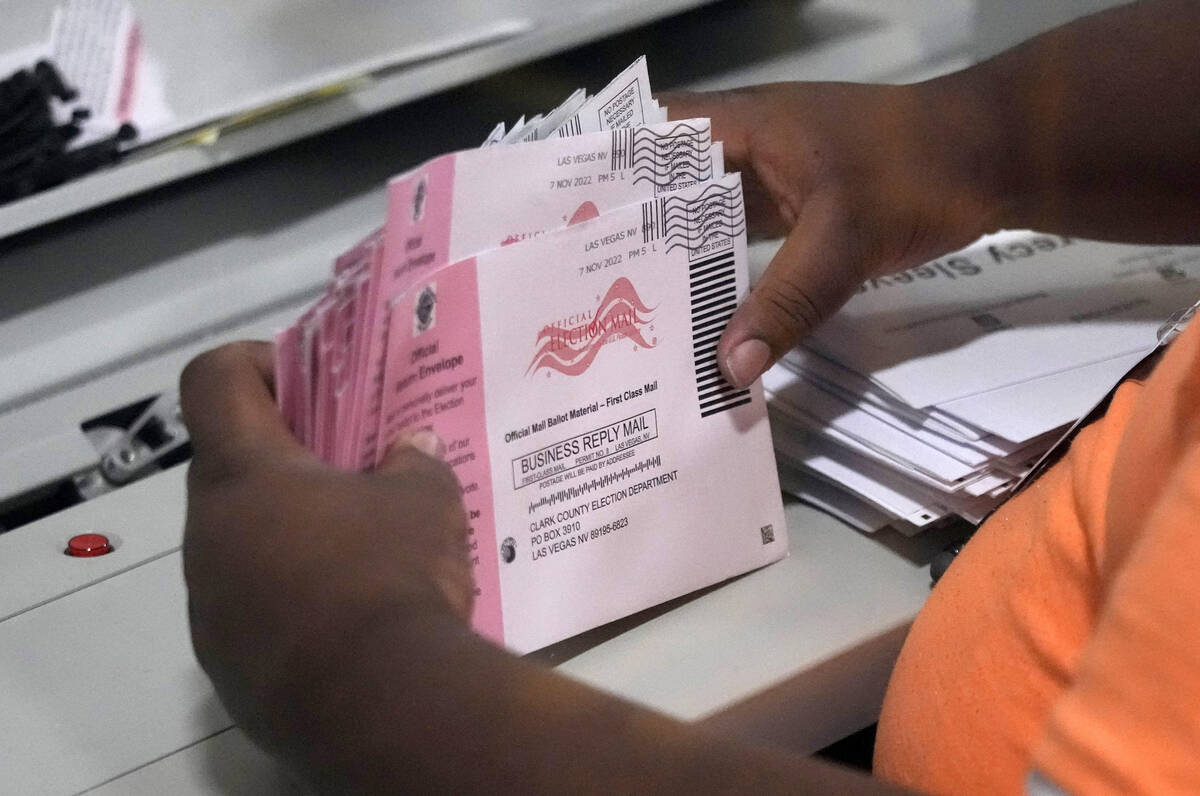Some Nevadans, facing obstacles to voting, have started casting ballots digitally

The 2024 general election is still more than a month away, yet Nevadans have already started casting their votes, including Native Americans who historically face voting barriers.
Secretary of State Cisco Aguilar announced Tuesday the start of voting with the kickoff of the state’s digital voting application that allows for some Nevada voters to cast their ballots digitally.
Elections officials have also started sending out mail ballots to Nevadans overseas, and starting on Thursday mail ballots will be ready to send out to out-of-state voters. Early voting begins Oct. 19, and Election Day is Nov. 5.
More than 500 people cast votes through the state’s Effective Absentee System for Election (EASE), which is available to active-duty members of the U.S. Armed Forces and their families, Nevada voters who are outside the country, voters with a disability, and, for the first time, Native voters who live on a colony or reservation in Nevada.
Of the 577 ballots that have been submitted as of Tuesday afternoon via EASE, 75 were from active-duty military members, 35 were from their spouses, 409 were from overseas citizens and 56 were from voters with a disability.
While early voting pertains to the wider voting public, EASE is for people who don’t have easy access to vote in a traditional method.
Overcoming barriers
So far two tribal voters have cast ballots on EASE as of Tuesday, according to the secretary of state’s office, which also announced the launch of a new Tribal Voters web page to provide information to help Native voters, who have historically faced barriers to voting.
Some reservations don’t have traditional mailing addresses, and historically Native voters lived far away from a polling location, which meant they were forced to drive for hours to submit their ballots.
For instance, before the election in 2016, the Pyramid Lake Paiute Tribe had to sue the state to get a polling location on its reservation. That election was the first time a lot of its members were able to vote, according to the tribe’s chairman, Steven Wadsworth.
“When we look at access to the ballot box, we need to ensure we’re meeting Nevada voters where they are,” Aguilar said.
‘New set of barriers’ as many tribes lack internet access
Tribal land across the state will have 18 Election Day polling locations, 12 early voting locations and eight ballot drop boxes, thanks to legislation passed in the last legislative session providing automatic polling locations on reservations and requiring county clerks to communicate with tribes and expand the EASE System.
“They have a fundamental right to vote, and we need to ensure that we’re reaching a population that doesn’t necessarily have access to those traditional ways of casting their vote,” Aguilar said.
Requiring polling locations on reservations is a big help, Wadsworth said, as that is one less trip the 1,800 residents need to make in order to cast their vote. But there are still barriers to voting, he said.
“When you introduce something new like EASE, it opens up a new set of barriers,” he said.
Many tribes are rural and still lack internet access, Wadsworth said. In Pyramid Lake, two of the three towns have internet access and the third is a work in progress.
Still, initiatives such as EASE and the recent legislation passed helps get “the Native voice heard with their votes,” Wadsworth said.
“A lot of times we are just ignored, even though we do we carry a big voice,” he said.
Contact Jessica Hill at jehill@reviewjournal.com. Follow @jess_hillyeah on X.